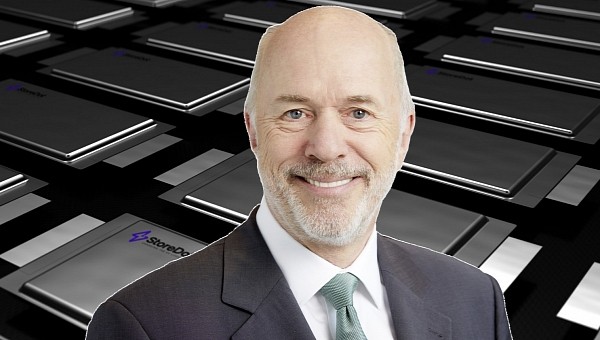Anyone following the automotive industry for a while has heard of Carl-Peter Forster. The executive was a BMW board member for manufacturing. A bit later, he joined GM as the European division president, Tata as the CEO, and Gordon Murray Design. StoreDot just enrolled the man for another task: to be the startup’s chairman.
The Israeli company believes Forster will help it make strategic decisions in its discussions with new automakers. Coincidence or not, Forster was a senior advisor for Geely Automotive and a board member at Volvo Cars. The Swedish carmaker and Polestar, both controlled by Geely, are investing in StoreDot and should be among the first companies to adopt XFC cells as soon as they are released in 2024. Mercedes-Benz and VinFast are two other investors in StoreDot that may begin using its XFC cells as soon as they are production-ready.
If you don’t know what that acronym means, it is “extreme fast charging,” something StoreDot believes it can offer without the need for different chemistries. A regular ternary cell can receive its secret sauce and help a battery pack recover 100 miles in 5 minutes, which the company also named 100in5. It also plans to offer semi-solid-state cells called 100in3 by 2028 and solid-state batteries called 100in2 in 2032 – which can be eight years after QuantumScape’s solution hits the market.
Forster should help the Israeli startup approach new carmakers to present its silicon-rich technology. The company said he would help encourage other car companies to independently assess the technology by receiving and testing samples, as StoreDot already does with its official partners.
One of the main advantages of these first XFC cells is that they use standard lithium-ion battery manufacturing equipment. In other words, current battery manufacturers can adopt the technology, just by tweaking the machines they already use to produce their cells. Currently, StoreDot’s A samples are made by EVE Energy, a Chinese battery manufacturer. Things should be different with 100in3 and 100in5 cells.
QuantumScape is spending significant time creating machines that will ensure its solid-state platform will make sense from an industrial perspective. Developing a cutting-edge battery that is just too expensive to manufacture will not help much improve and perfect EV adoption. As we have pointed out before, BEVs need to have cheaper, lighter, and more convenient battery packs before most car buyers adopt them.
As a manufacturing expert, Forster may be able to help StoreDot with that as well, even if his experience is with making cars, not batteries. Despite that, the executive dominates the main principles involved with the activity, which is always an asset. He is already helping the Israeli startup as its chairman, but we will have to wait a bit until Forster can make a difference at the company.
If you don’t know what that acronym means, it is “extreme fast charging,” something StoreDot believes it can offer without the need for different chemistries. A regular ternary cell can receive its secret sauce and help a battery pack recover 100 miles in 5 minutes, which the company also named 100in5. It also plans to offer semi-solid-state cells called 100in3 by 2028 and solid-state batteries called 100in2 in 2032 – which can be eight years after QuantumScape’s solution hits the market.
Forster should help the Israeli startup approach new carmakers to present its silicon-rich technology. The company said he would help encourage other car companies to independently assess the technology by receiving and testing samples, as StoreDot already does with its official partners.
One of the main advantages of these first XFC cells is that they use standard lithium-ion battery manufacturing equipment. In other words, current battery manufacturers can adopt the technology, just by tweaking the machines they already use to produce their cells. Currently, StoreDot’s A samples are made by EVE Energy, a Chinese battery manufacturer. Things should be different with 100in3 and 100in5 cells.
QuantumScape is spending significant time creating machines that will ensure its solid-state platform will make sense from an industrial perspective. Developing a cutting-edge battery that is just too expensive to manufacture will not help much improve and perfect EV adoption. As we have pointed out before, BEVs need to have cheaper, lighter, and more convenient battery packs before most car buyers adopt them.
As a manufacturing expert, Forster may be able to help StoreDot with that as well, even if his experience is with making cars, not batteries. Despite that, the executive dominates the main principles involved with the activity, which is always an asset. He is already helping the Israeli startup as its chairman, but we will have to wait a bit until Forster can make a difference at the company.










